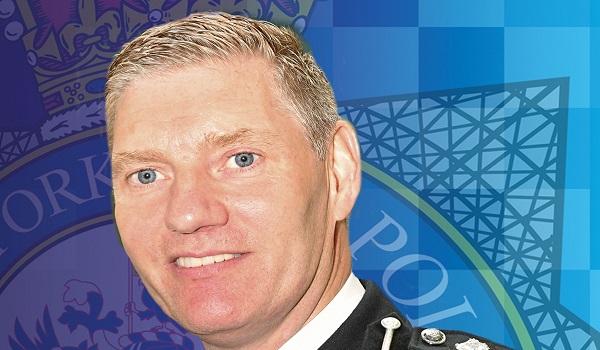Government to scrap pre-charge bail reforms
The Home Office has issued proposals to reverse Theresa May’s reforms to pre-charge bail to “protect victims and support the police”.
In a consultation issued on Wednesday (February 5), Home Secretary Priti Patel announced plans to scrap the 28-day limit, raising the initial period that suspects can be bailed to return to police stations to 60 or 90 days.
The document also proposes removing the presumption against using pre-charge bail – a central plank of the reforms initiated when Mrs May was Home Secretary in 2015 and implemented in 2017.
Against the advice of the Association of Chief Police Officers and the Crown Prosecution Service, which said the reforms were unworkable, the Government limited the length of pre-charge bail to an initial 28 days and required any extension of bail conditions for up to three months should be authorised by a senior officer.
They were introduced as a result of an outcry over public figures being placed on bail for more than a year while allegations of sexual abuse were investigated.
However, the reforms saw a massive drop in the number of suspects subject to pre-charge bail. In 2016/17, there were 67,838 people on bail in London but in the first year after their introduction, it fell to just 988.
Sexual and domestic abuse campaigners believe releasing under investigation (RUI), which does not allow officers to impose conditions on suspects, means they are free to attack and intimidate their victims.
The Centre for Women’s Justice issued a ‘super-complaint’ in March 2019, claiming the police failed “to use protective measures in cases involving violence against women and girls” by not using the option to use pre-charge bail.
Adina Claire, acting co-chief executive officer of Women’s Aid, welcomed this “much-needed consultation”.
“At Women’s Aid, we’ve been calling to reverse the pre-charge bail reforms introduced in 2017, as these restrictions on the use of bail can leave survivors unprotected while they wait for their perpetrator to face justice,” said Ms Claire. “It is now essential that survivor voices are heard as part of this consultation, and reforms are swiftly put in place to protect their safety.”
Bambos Charalambous, MP for Enfield Southgate, is due to lead a call for changes to be implemented expeditiously in a debate in the House of Commons on Wednesday afternoon.
In an article for the PoliticsHome website, he said: “Right now, the Government is showing its willingness to rush legislation through Parliament when it wants to. This is a critical time to make sure the Home Office review gives proper commitment and clarity to understanding why the use of RUI has rocketed and to properly assess and recognise the damage its use has done.
“Legislation needs to be updated for pre-charge bail and RUI – potentially dangerous suspects should not be allowed unlimited freedom to further abuse and violate their victims.”
Other changes set out in the consultation include:
- Placing a duty on officers to use pre-charge bail in cases where it is necessary and proportionate, including for cases where there are risks to victims, witnesses and the public, where it could prevent reoffending and where the offence in question has significant real or intended impacts;
- Allowing officers of a lower rank to authorise and extend pre-charge bail;
- Delaying the point at which magistrates’ approval for the extension of bail is required from three months to six, nine or 12 months; and
- Introducing ‘review points’ in codes of practice for investigations where pre-charge bail is not used, including where individuals are interviewed voluntarily or released under investigation.
Ms Patel said: “I’m committed to giving a voice to victims and providing the police with the support they need to protect the public from harm.
“The public consultation forms a central part of this review, which will help ensure the needs of victims are put first and the police can investigate crimes effectively and swiftly.”
National Police Chiefs’ Council lead for bail management, Chief Constable Darren Martland, said: “We are pleased that the Government has launched a review of recent bail legislation. We welcome the new proposals put forward and intend to fully contribute to the consultation.
“In the years since the bail legislation was amended, the police service has worked hard to implement the changes in the spirit they were introduced. What has become clear in that time is that a number of unintended consequences have followed, presenting fresh challenges for the police service and the wider criminal justice system.”
Her Majesty’s Inspectorate of Constabulary and Fire and Rescue Services and Her Majesty’s Crown Prosecution Service Inspectorate are conducting a joint inspection of how police forces manage changes to bail and are expected to publish their reports by the summer.







